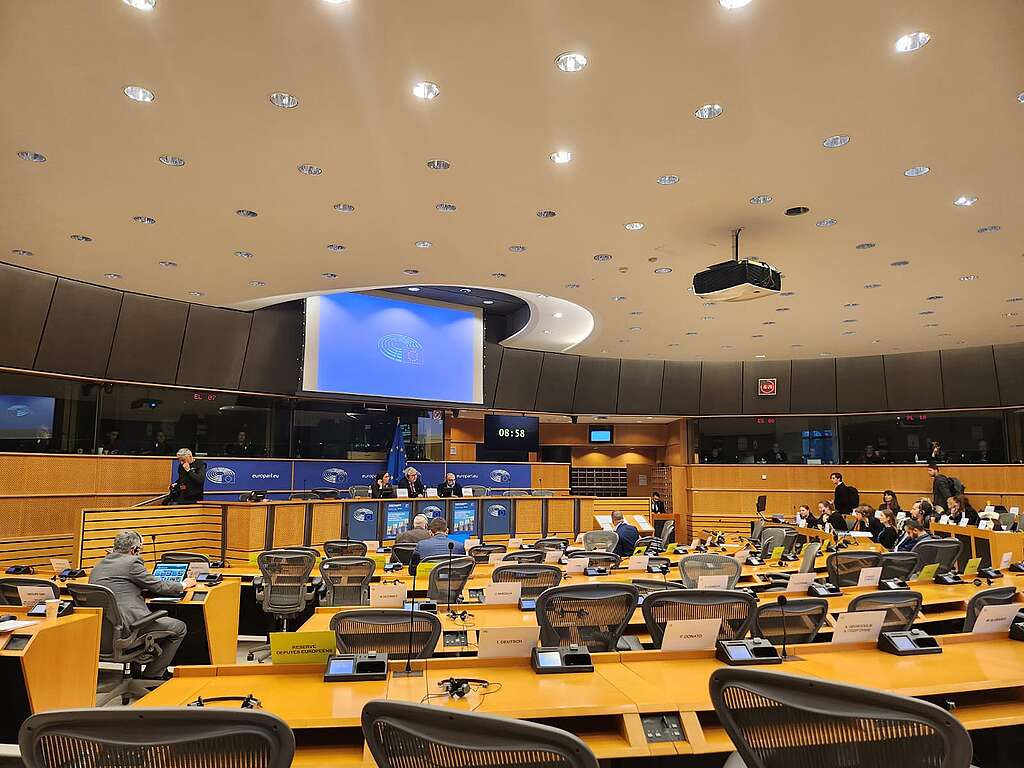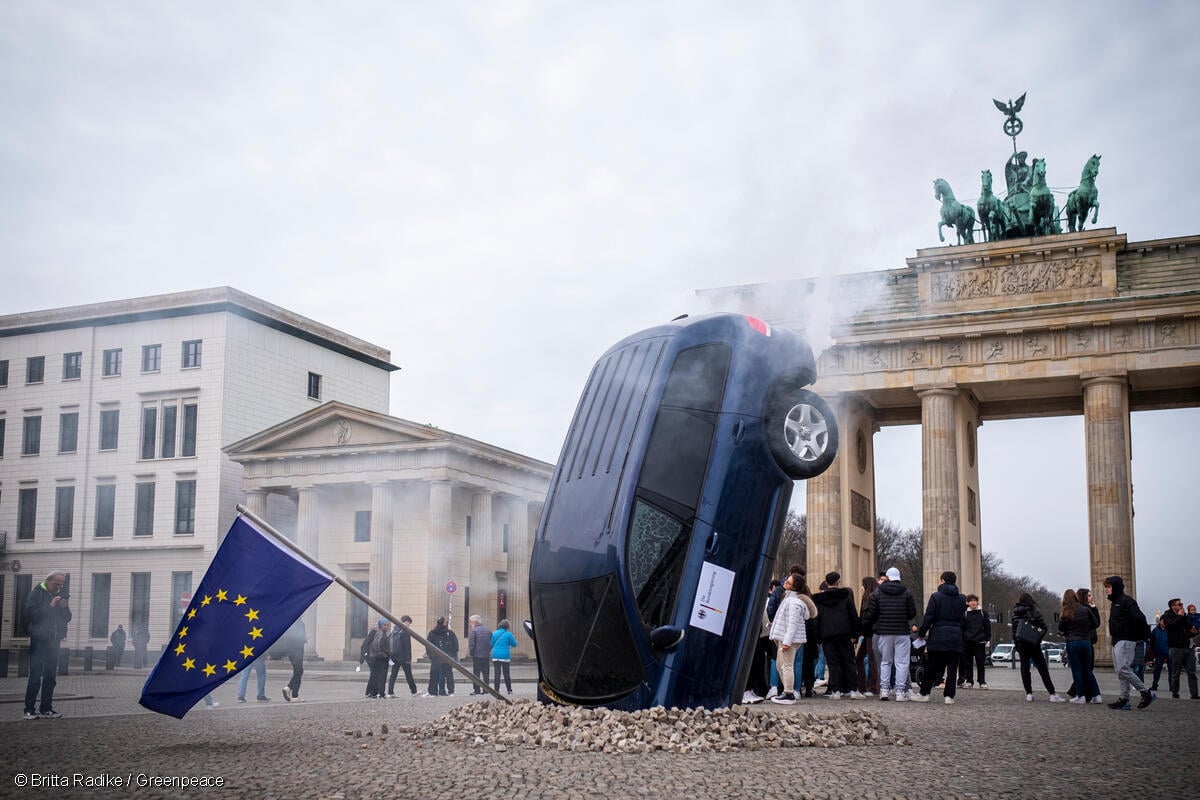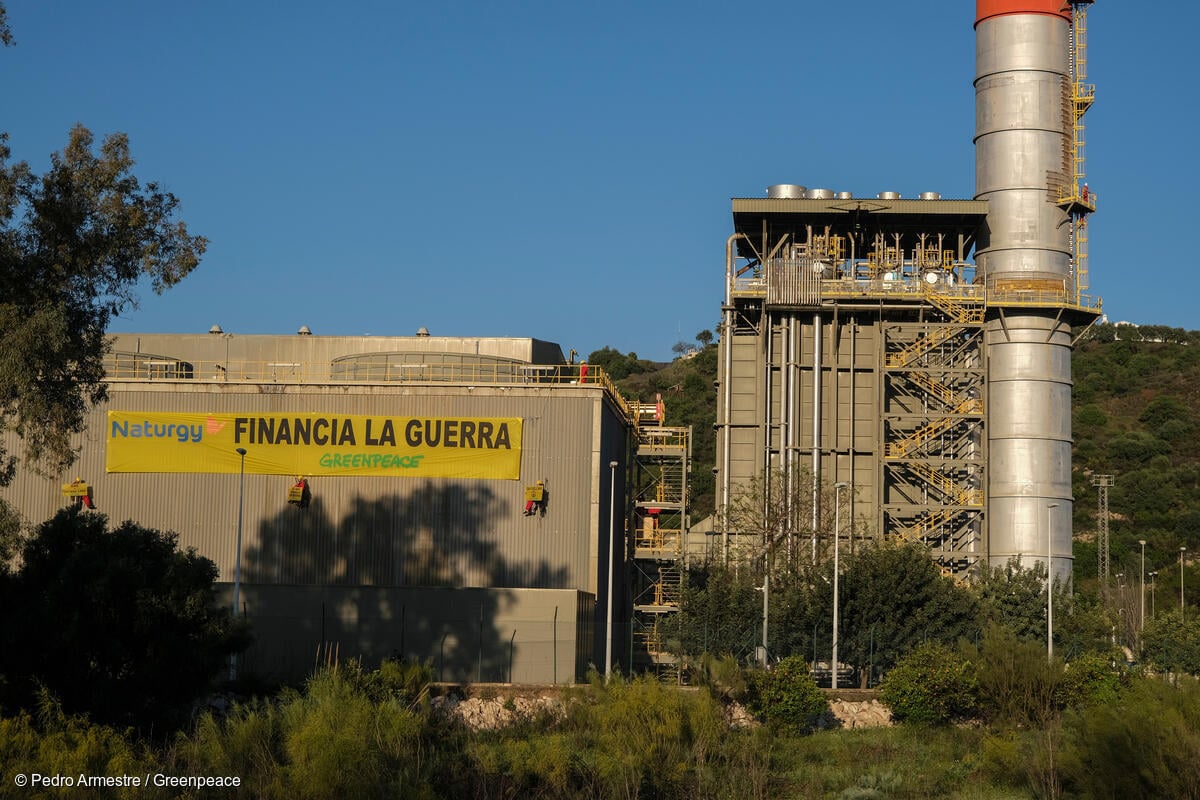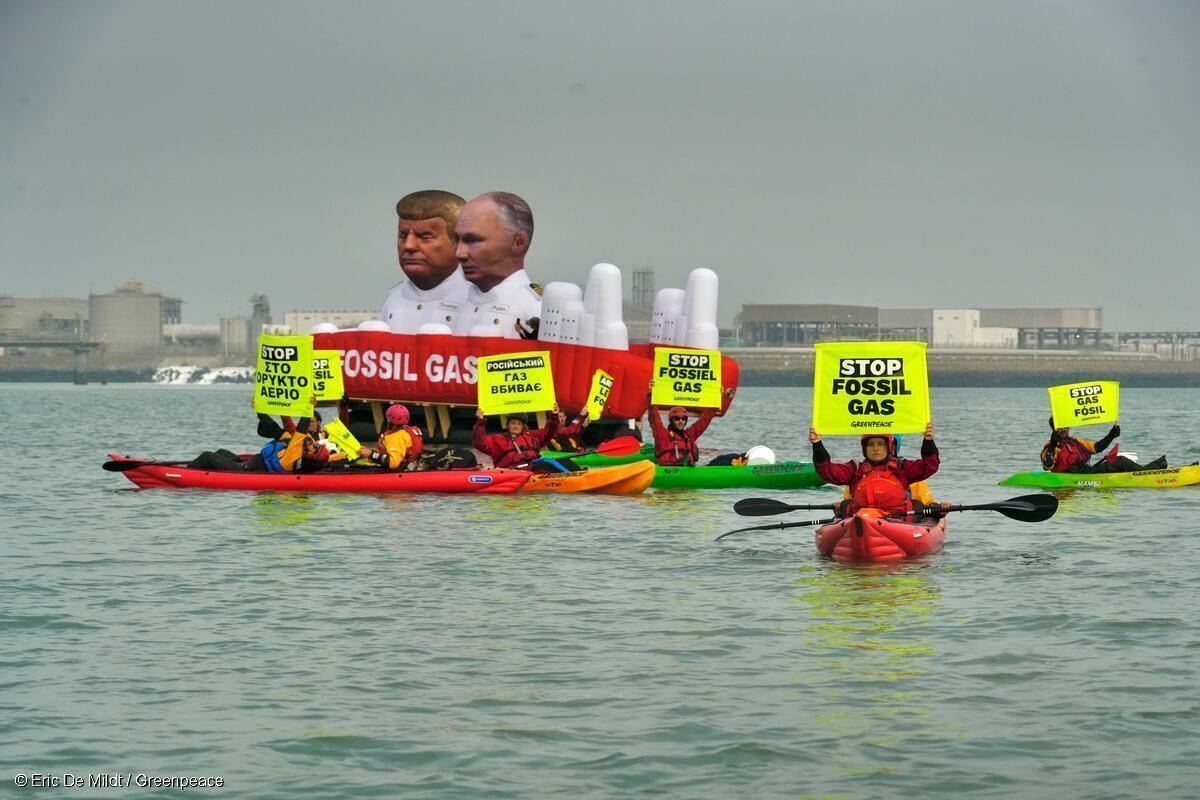Brussels – Oil, gas and coal lobbyists should be kept at arm’s length from policy making, just like tobacco lobbyists, the European Parliament heard today in a first-of-its-kind hearing on the fossil fuel industry’s responsibility for the energy crisis.

The European Parliament’s petitions committee heard from experts in controls on tobacco lobbying, political economy and energy poverty about the role the fossil fuel industry has played in rising energy bills over the last two years.
Anna Gilmore, Professor of Public Health and Director of the Tobacco Control Research Group at the University of Bath, warned that the fossil fuel industry was using the same lobbying and PR tactics as the tobacco industry to avoid regulations on their harmful products, and argued that similar rules are needed to prevent fossil fuel lobbying on climate and energy policy.
The hearing was held by a cross-party group of MEPs, following a call from 91 organisations as part of the Fossil Free Politics coalition to hold the fossil fuel industry to account for its role in the energy and cost of living crisis, and to call for restrictions on fossil fuel lobbying.
Anna Gilmore, Professor of Public Health at the University of Bath and Founding Director of the Tobacco Control Research Group at the University of Bath told the committee: “We need to stop ignoring the overwhelming evidence that there is a fundamental conflict between the interests of fossil fuel companies and those of the public. We need an “Article 5.3” for fossil fuels.”
Article 5.3 summarises how the WHO Framework Convention on Tobacco Control, which is designed to minimise tobacco industry interference in policymaking, should be implemented.
Stefan Bouzarovski, Professor of Geography at the University of Manchester and a co-founder of the EU Energy Poverty Observatory, told the committee: “The energy poverty crisis in Europe is a political choice – the solutions are there to end it, but they are being insufficiently pursued. There is not enough political representation of energy poverty groups at the EU level, compared to evidence of relatively strong access afforded to the fossil fuel industry.”
Marie Toussaint MEP (Greens, France) said: “The oil, gas and coal companies are earning a lot of money out of strategies that destroy the climate and put humanity in danger. This industry has been raking in massive profits while ordinary people struggle to pay the bills. At every turn, and for decades, the fossil fuel industry fought against any attempt to curve their strategies towards the respect of the Paris agreement, and share the billions they gained during the energy crisis that could have gone to the transition and to protecting vulnerable households. We succeeded in getting the tobacco lobbies out of the European decision-making process. Let’s do the same with fossil fuels.”
Pierre Larrouturou MEP (Socialists & Democrats, France) said: “When the scale of the public health emergency caused by smoking was made clear, we realised there was no place for tobacco lobbyists to guide decisions on public health. With the climate crisis deepening, we need to urgently apply the same rules to fossil fuel lobbyists and kick Shell, TotalEnergies and the rest out of climate and energy policymaking for good.”
Cornelia Ernst MEP (The Left, Germany) said: “We need the European Commission to lead the way and take decisive action by introducing a conflict of interest framework to cut fossil fuel lobbyists out of politics. Without the fossil fuel industry wasting the precious time we have left with false solutions, we will be able to pass meaningful laws to protect the climate.”
Silvia Pastorelli, Greenpeace EU climate campaigner speaking on behalf of the Fossil Free Politics coalition said “The rich polluters who’ve brought us into this crisis must be the ones to pay for the energy transition, so the bill doesn’t land on the doorsteps of people already struggling to make ends meet. This won’t happen while the fossil fuel industry guides politicians on climate and energy policy. Decision makers should be listening to the voices of Europe’s energy-poor instead.”
Fossil Free Politics is a Europe-wide coalition of anti-poverty groups, trades unions and climate organisations which campaigns for a firewall between the fossil fuel industry and climate policy including ending lobby meetings with the fossil fuel industry and excluding them from participation in public institutions’ expert and advisory bodies. It is coordinated by Corporate Europe Observatory, Food and Water Action Europe, Friends of the Earth Europe and Greenpeace EU.
EU Transparency Register: 461250348032-23
Press contacts:
John Hyland, Greenpeace: [email protected] / +32 471 75 89 85
Paul Hallows, Global Witness: [email protected] / +32 487 80 31 61
Interviews with expert speakers from today’s hearing available on request.



